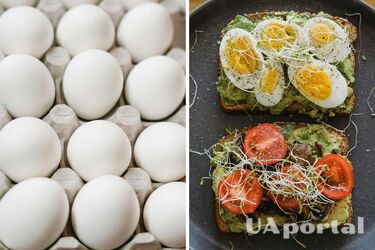Why you need to put vinegar in water for boiling eggs: you definitely didn't know this

Eggs, which are high in protein, ultra-vitamins, and minerals, are one of the most indispensable foods. The advantage of this ingredient is that it can be used to make many different dishes.
But have you ever thought about boiling eggs with vinegar? It's a great method, say Sante Plus experts, that you'll love in no time.
First, make sure the egg is fresh before you boil it. To do this, immerse it in a bowl of cold water. If it does not sink under water, throw it away and do not eat it under any circumstances! In fact, when eggs rot, a small air chamber forms inside that makes them float! On the other hand, if the egg is working properly, it is ready to eat and ready to cook.
Carefully place it in the pan. To know the cooking time and avoid mistakes, set a timer or use the alarm on your mobile phone. For a hard-boiled egg yolk, but not too hard, you need 12 minutes. For a creamy yolk, only 7 minutes.
Although it may seem trivial, cooking eggs to perfection is not child's play. It's even quite complicated. Have you ever tasted an egg white and felt like you were eating rubber? That's why we recommend this simple vinegar tip.
Fill a saucepan with water and make sure the egg sinks to the bottom. When the water starts to boil, add a teaspoon of white vinegar to the cooking water. This way, your egg will stay intact and won't break!
Leave it to cook for ten minutes and immediately dip the egg into cold water. Then you can enjoy the light texture of the egg.
You can also use the vinegar method to properly prepare poached eggs. These are eggs cooked whole and without shells in a pot of boiling water. Adding a small amount of vinegar will help the white to curdle faster: thus, you will get a nice whole egg. However, to avoid affecting the flavor of the egg, the amount of vinegar should be measured well. It should not exceed 3% of the total volume of liquid. For example, three liters of water will require six tablespoons of vinegar.
If you want to get the latest news about the war and events in Ukraine, subscribe to our Telegram channel!
